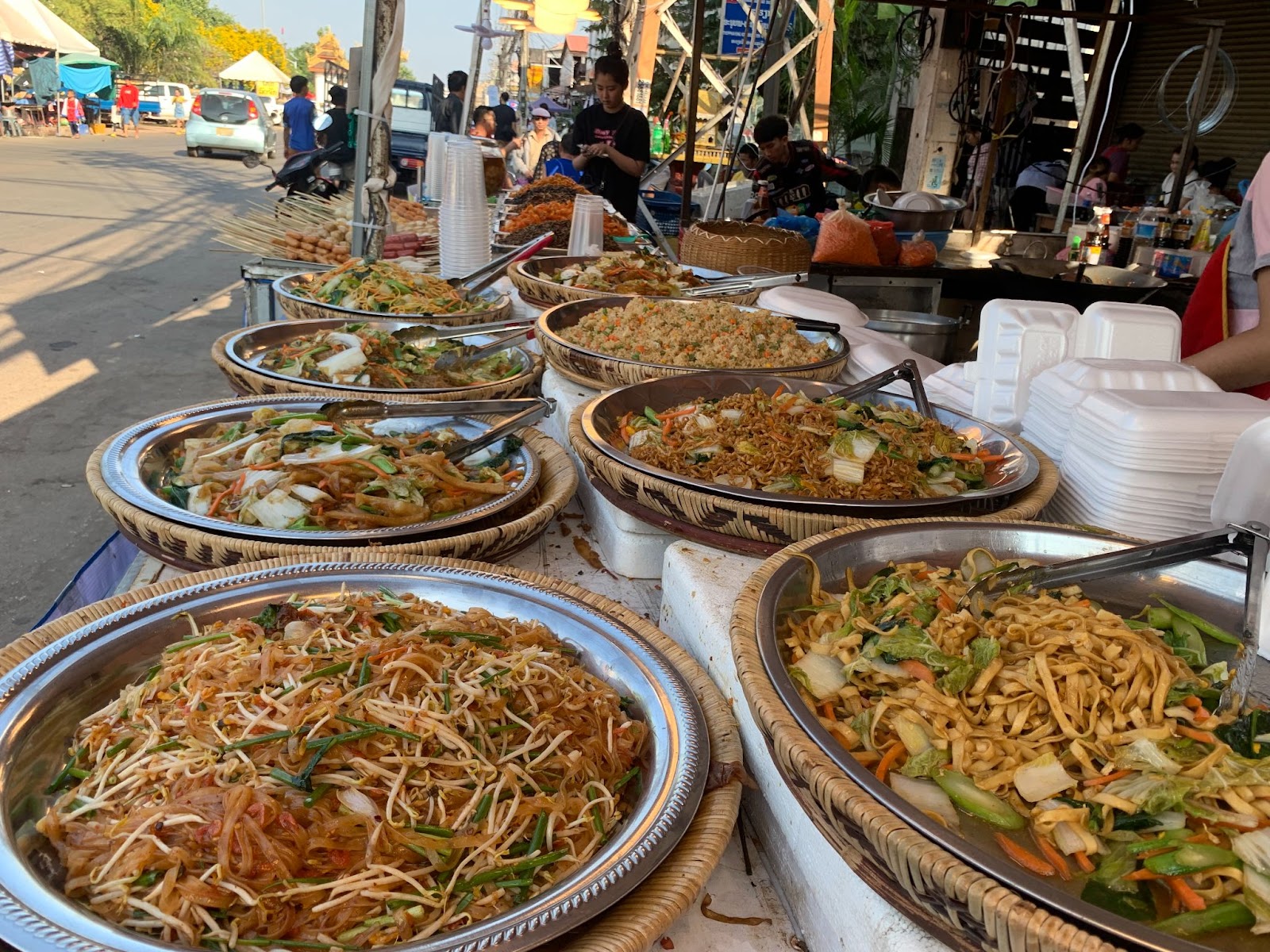I experienced amazing Middle Eastern hospitality in my late twenties and early thirties in Sierra Leone and the West Bank. Once I was welcomed home, I became a friend for life. Meals there consisted of delicious delicacies for twice as many people as were invited. Especially as a single woman, they took extra care to keep an eye on me. I knew if I had any questions or problems, one phone call could solve almost all my challenges. My problems became their problems. In the West Bank, I was there as a two-week consultant. The project area was an hour or two drive from the nearest hotel. The project manager knew that it would be exhausting for me to commute back and forth every day, so I stayed at his home. I slept in his youngest daughter’s room while she moved into a room with her older sister. Almost one and a half decades later, I know if I appeared on their doorstep, they would still welcome me home.
Recently, I moved to Vientiane, the capital city of Laos. It is not a very big city, and I was told that I could bike to most places. As a result, when I moved from Malawi to Laos, I brought my bike with me. With Google maps opened on my cell phone affixed to my bike, I enjoyed the freedom to cycle everywhere. At 8pm, there were still cars and motorbikes on the road, so I felt safe cycling home in the evenings. On my third night in the country, I was cycling home after dinner at a colleague’s house and the chain on my bike broke. I looked on Google maps for a main street and found a coffee shop that had just closed. With the help of Google translate, I communicated that I needed help getting a taxi. The barista, in his limited English, told me that a taxi was not available, but that he was leaving in 30 minutes and would be happy to give me a ride home. Sure enough, thirty minutes later, he was lifting my bike to the back of his pickup truck and driving me home. I tried to give him a tip to thank him afterwards, but he wouldn’t accept it. When I told my colleagues about this, they said this was normal Lao hospitality. However, in my eyes I was blown away by his care.
When a foreigner resides among you in your land, do not mistreat them. The foreigner residing among you must be treated as your native-born. Love them as yourself, for you were foreigners in Egypt. I am the Lord your God. (Leviticus 19:33-34)
It is not easy being a foreigner. I don’t know what normal behavior is. I don’t know what attire is acceptable. I don’t know how to do the simplest things and I am sure I’ve probably offended people as I go about my everyday activity. I am constantly watching what others around me are doing and trying to copy them. There are so many foreign foods in the food stalls on the side of the road, so I observe what other people are eating and point to it. I copy how they eat the food; what items they combine into one bite. I am thankful when people notice my stares, and smile to show me what they are doing or explain to me what something is. In my broken Lao, I try to communicate that I don’t speak Lao, so they try to speak in their limited English. I am thankful for how they are showing love to this foreigner in their country.
I wish we showed that kind of love and patience to the foreigners in our midst. The foreigner that does not speak much English; the foreigner that takes too much time at the airport security line because they brought way too much stuff and is not sure about what items to remove from their bag. I wish those that have limited English will never hear someone tell them to go back to their country. I hope that those delaying the security line will not notice my annoyed look because they are slowing down the line. I am reminded to be more loving and to be patient.
Do not forget to show hospitality to strangers, for by so doing some people have shown hospitality to angels without knowing it. (Hebrews 13:2)

God commands us to be loving and hospitable to strangers and foreigners. He hints that some of them could be angels in disguise. In Matthew 25:40, he raises the bar even further when he comments that whatever we do to the least of these, we are doing unto the Lord. If Jesus was delaying the security line, I would be patient. If Jesus couldn’t speak English, I would bend over backwards to try to understand what he is saying. If Jesus couldn’t afford to buy groceries, I would totally jump in and pay for him.
As I adjust to living in a completely new country, I am benefiting from Lao hospitality. I hope that I will learn from them and be able to extend this kind of radical hospitality when I am back in my native home.
Photos provided by the author.




The Reformed family is a diverse family with a diverse range of opinions. Not all perspectives expressed on the blog represent the official positions of the Christian Reformed Church. Learn more about this blog, Reformed doctrines, and our diversity policy on our About page.
In order to steward ministry shares well, commenting isn’t available on Do Justice itself because we engage with comments and dialogue in other spaces. To comment on this post, please visit the Christian Reformed Centre for Public Dialogue’s Facebook page (for Canada-specific articles) or the Office of Social Justice’s Facebook page. Alternatively, please email us. We want to hear from you!
Read more about our comment policy.